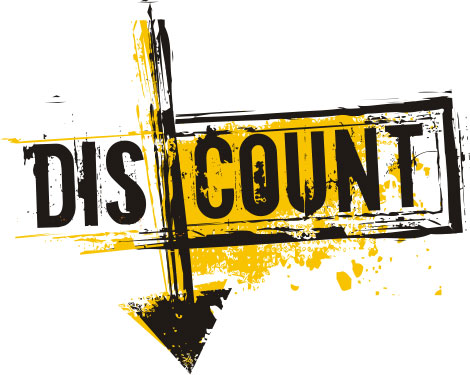UHF Discounted, Ownership Cap Targeted
The professional video industry's #1 source for news, trends and product and tech information. Sign up below.
You are now subscribed
Your newsletter sign-up was successful

WASHINGTON—The UHF discount is back, the national audience reach cap is on the table, noncommercial TV stations can do third-party fundraisers and the members of their governing boards can keep their private data to themselves. So unfolded today’s Federal Communications Commission monthly open meeting, but not without an ear-scorching rebuke from the commission’s only Democrat over reinstatement of the UHF discount, which counts just half the population covered by a UHF TV signal toward the 39 percent national audience cap.
“Welcome to industry consolidation month at the FCC,” Commissioner Mignon Clyburn said in her dissent. “The UHF discount—a rule that everyone, including the majority, admits has no place in a post-digital transition era [has been] snatched from the regulatory crypt, outdated and divorced from the technical realities of broadcast television in the digital age… Inertia is not the culprit, but rather an overzealous, misguided willingness to ignore the realities of today’s marketplace, much to the detriment of the viewing public.”
The UHF discount is a relic of analog broadcasting, when transmitting in the UHF band was less efficient than in VHF. Such is not the case with digital transmission. A docket was opened in 2013 under Clyburn’s interim tenure as chair to eliminate the discount. Former Chairman Tom Wheeler took up the issue in an item circulated last summer and it was eliminated last fall. Republican Commissioner Michael O’Rielly kept it brief, saying that he didn’t “believe the commission has the authority to alter the UHF discount, and certainly not separate from the national ownership rule.”
Reinstatement allows ownership of more TV stations under the 39 percent national audience cap, which current Chairman Ajit Pai said is on the table after a litany of pop-culture references to that which is “inextricably linked” such as Kanye West and Kim Kardashian.
“Back in 2013, when the commission began this proceeding, I had a simple request,” Pai said. “I asked my colleagues to seek comment on both eliminating the UHF discount and adjusting the national ownership cap. I specifically argued we cannot do one without the other.”
“Today, the FCC is wiping the slate clean, and later this year, we will begin a new proceeding to review comprehensively the future of the national cap, including the UHF discount,” he said, pledging to “everything in my power to ensure that this review does not similarly take three years to complete.”
The National Association of Broadcasters high-fived the 3-2 vote to reinstate the discount. "NAB supports today's FCC action reinstating the UHF TV station ownership discount and commends Chairman Pai for his leadership on this issue. This represents a rational first step in media ownership reform policy allowing free and local broadcasters to remain competitive with multi-national pay TV giants and broadband providers."
Former Democratic Commissioner Michael Copps, who is now with the public interest think tank Common Cause, called the UHF discount a “huge handout to big broadcasting” that would lead to higher cable rates.
In other actions, the commission voted unanimously to let non-commercial educational stations engage in fundraising for third parties. Stations receiving funding from the Corporation for Public Broadcasting were excluded from the order that allows NCEs to “devote up to 1 percent of their annual airtime to fundraising for third-party organizations that qualify as tax-exempt non-profits… without having to first seek a waiver fro the FCC.”
Additionally, the members of NCE governing board will no longer have to reveal personal data on ownership reports, but will instead use a “special use” registration number. Clyburn also dissented on this one because she considered it detrimental to media diversity.
Citing a Government Accountability Office report, Clyburn said it “specifically affirms data from NCE stations is needed to have a comprehensive picture of ownership diversity, including representation from women and minorities.”
She was outvoted by her GOP colleagues, much to the delight of the America’s Public Television Stations, a nonprofit representing NCEs in D.C.
“We are grateful that the FCC has resolved these two long-standing proceedings and has adopted final orders in a manner that recognizes the distinction of NCE television and radio stations from other broadcasters in terms of structure, governance and finances,” said Lonna Thompson, the organization’s executive vice president, chief operating officer and general counsel.
The commission also voted to propose rules making it easier for broadband providers to navigate municipal access rules, and to deregulate the business data services market, which was met with “mixed reviews,” according to B&C’s John Eggerton.
Also see…
Jan. 25, 2017
“CBS Urges FCC to Reinstate UHF Discount”
CBS government affairs executive vice president, John Orlando, met with FCC Republicans earlier this month to argue that broadcasters “desperately” need to get out from under the new ownership limits imposed by the FCC’s decision to eliminate the UHF discount immediately, “without waiting to launch any further proceeding on other ownership issue.”
Sept. 7, 2017
“FCC Abandons UHF Discount”
Wednesday’s 3-2 partisan vote includes a grandfather clause, which means that current owner groups would not have to divest stations. But it could affect future acquisitions. In his dissent, Republican commissioner Ajit Pai suggested that the looming threat of eliminating the UHF discount has already cast a pall over station transactions.
Jan. 25, 2017
“Report: CBS Urges FCC to Reinstate UHF Discount”
Nov. 14, 2013
“UHF Discount Comment Due Date Set”
Sept. 26, 2013
“FCC Opens Docket on Ending UHF Discount”
Oct. 30, 2006
“Stations call for end of UHF discount”
March 2, 2004
“FCC Media Bureau issues Public Notice seeking comment on 50 percent UHF discount”
March 1, 2004
“FCC revisits ‘UHF discount’ rule”
June 26, 2003
“UHF Discount Under Fire”
The professional video industry's #1 source for news, trends and product and tech information. Sign up below.
